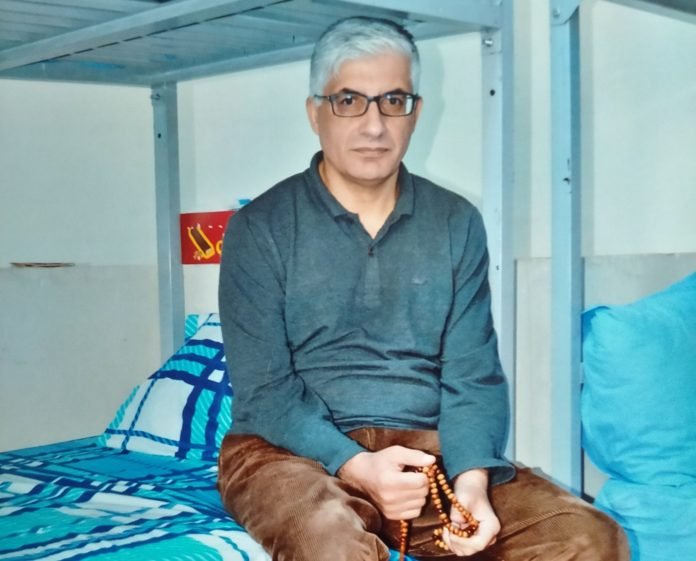Turan Canpolat (51), a lawyer who was arrested based on doctored documents on January 30, 2016, has remained in isolation for 56 months, TR 724 reported.
Canpolat was called on January 27, 2016 by a client whose house was searched by the police. He visited his client and documented violations committed by the police during the search, which they jointly signed. He was later invited to the police station, and thinking there was an issue concerning his client, he complied.
Canpolat was detained upon arrival at the station, based on the statements of M.T., who had hired Canpolat as his lawyer a few days earlier. It later became apparent that after his arrest, the police had doctored a previous arrest warrant issued on January 26, 2016 to add Canpolat to the warrant to make it seem as he was arrested based on that warrant.
M.T. had requested legal assistance because he was pressured by the police to give incriminating statements for targeted people under investigation. Since the relationship between Canpolat and M.T. was governed by attorney-client privilege, the police could not obtain information from Canpolat concerning M.T. The police took M.T. to the notary public to fire Canpolat as his lawyer and even paid the notary’s fee for the procedure of dismissal.
In his statements M.T. claimed that Canpolat was a member of the Gülen movement, a religious group inspired by Muslim cleric Fethullah Gülen, and was the leader of a group of three other members of the movement who all worked at the Malatya courthouse. The clerks who were said to be connected to Canpolat were tried in a separate case and acquitted of all charges, removing any rationale or legal grounds for his continuous detention. M.T. later confessed that his statement was taken under duress and that he signed the document against his will.
Despite being in prison during a coup attempt on July 15, 2016, Canpolat was charged with taking part in the abortive putsch, a charge that was later dropped by the prosecution. He was convicted of representing companies that were allegedly affiliated with the Gülen movement and later shut down by emergency decrees. He was sentenced 10 years under Turkey’s anti-terror law and put in isolation.
Canpolat’s case has been pending at the Supreme Court of Appeals for the past 14 months, during which time he has made 14 applications requesting his release. In May 2020, 12 human rights and law associations from Europe and the Americas wrote a letter to the Turkish Ministry of Justice pointing out that Canpolat’s arrest was a travesty of justice and requesting his immediate release.
Following the coup attempt, the Turkish government declared a state of emergency and launched a massive crackdown on followers of the Gülen movement under the pretext of an anti-coup fight. Over 540,000 people were detained on terrorism-related charges, more than 80,000 were arrested or imprisoned and over 150,000 public servants, including 4,145 judges and prosecutors, were summarily removed from their jobs for alleged membership in or relationships with “terrorist organizations.”
Five hundred seventy lawyers were jailed and 1,480 of them have been prosecuted since the abortive 2016 coup, according to a UN report.
The Turkish government has been accused of intimidating lawyers representing clients associated with dissident groups. In a 2018 report, the Office of the United Nations High Commissioner for Human Rights (OHCHR) highlighted “a pattern of persecution of lawyers representing individuals accused of terrorism offenses, being associated with their clients’ cause (or alleged cause) while discharging their official functions, and consequently prosecuted for the same or related crime attributed to their client.”
The crackdown on lawyers has intensified in recent weeks. The Ankara Chief Public Prosecutor’s Office issued detention warrants last week for 60 lawyers on terror charges. The detained lawyers were reportedly questioned about their legal work.
The news of the operation came amidst reports that Turkey’s governing party has started working on an amendment to the law on lawyers following President Recep Tayyip Erdoğan’s call on September 1 for the suspension of lawyers accused of links to terrorism.
“We should be discussing whether methods such as expulsion from the profession should be introduced for lawyers,” Erdoğan had told judges and prosecutors at a ceremony in Ankara. Just as thieves should not be called on to defend burglars, “a terrorist should not be defended by a terrorist lawyer,” he had said.















